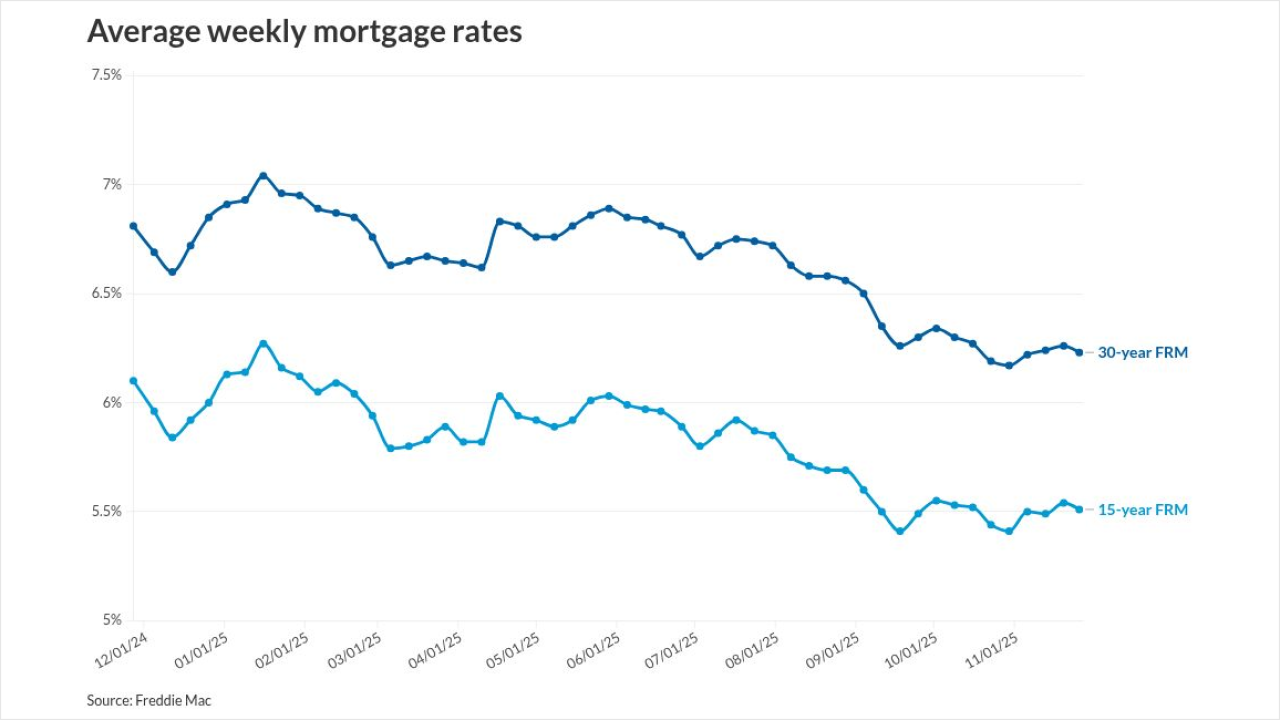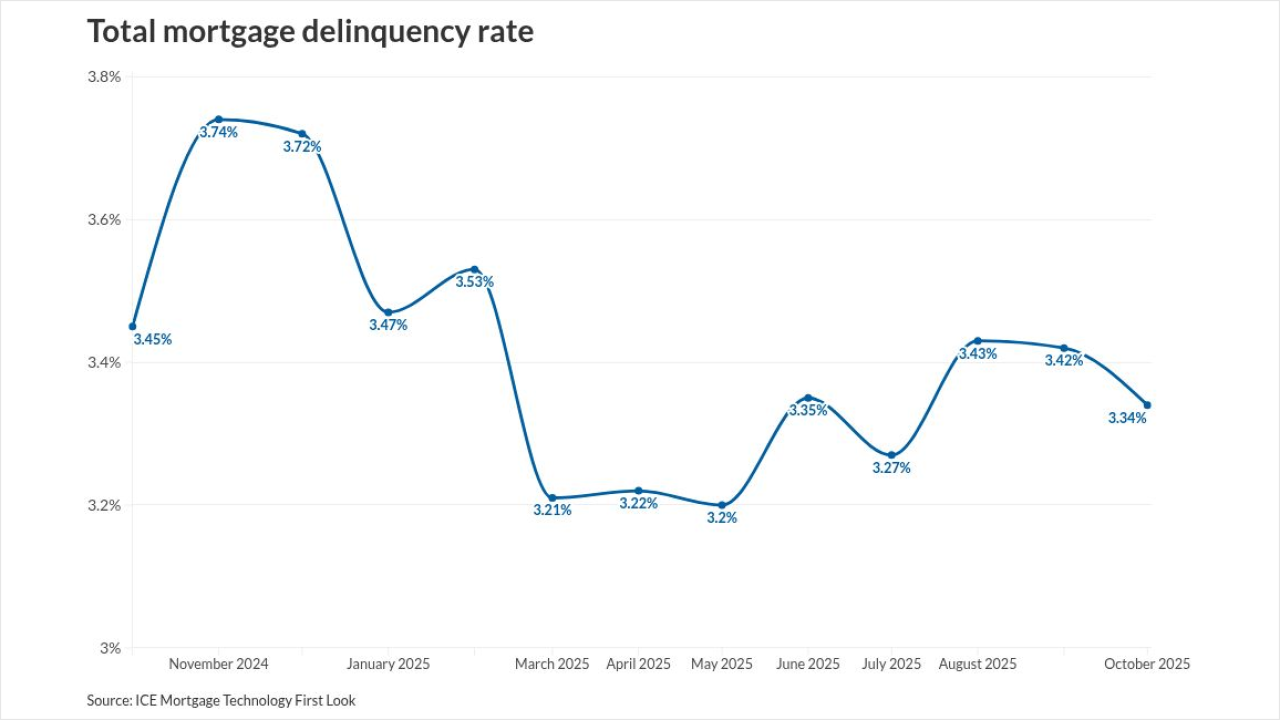Freddie Mac produced modest second-quarter results, reflecting a stabilizing business that CEO Donald Layton compared to a utility company.
"You know what the best word on this quarter is [that] we like? Boring," he said in an interview with National Mortgage News.
Freddie generated $2.5 billion in net income during the second quarter, compared with
"As a GSE that's basically a guarantor, we believe we should be relatively steady. There's a book of business, our business model is mainly earning returns on the outstanding guarantees. It should clock over at a very stable, electric-utility-stock-kind-of-way," Layton said.

"We're not going to massively outgrow the mortgage market. If it goes up, we'll go up with it, hopefully a little more proportionally. If it goes down, we tend to go down with it; we're too large of a market share," he added. "We're trying to have a relatively low-drama, routine, generate-the-earnings type of business model."
Freddie estimates it provided $103 billion in liquidity to the mortgage market during the quarter and said the volume of first-time homebuyer purchase mortgages it bought from lenders was at its highest level in 10 years. In addition, 87% of multifamily rentals it helped finance were affordable at or below area median incomes.
Managing interest rate risk through hedge accounting translates into relatively modest GAAP earnings volatility.
Freddie Mac's portfolio of legacy assets — which carry significant credit spread risk — is 98% below its peak, down to just $3 billion. Disposing of these assets help keep spread risks at appropriate levels and curb volatility.
"The most interesting thing we saw was the great success of reducing single-family legacy assets. It is only about a third of our mortgage investment portfolio, which is where these things end up. That's a big accomplishment," Layton said. "We have the great multifamily credit performance, which is outstanding. And we have the excellent credit performance of single-family credit after the hurricanes and such."
High credit quality helped the single-family serious delinquency rate drop to 0.82%, its lowest point since 2008. The multifamily delinquency rate remained near historical lows, at 0.01%.
While the second quarter was a successful one, there's always room to improve. Layton points to the continued evolution of credit-risk transfers, especially in the single-family business, as a focal point.
"Transfer greater percentages of the risk, which levers up our ROE for the taxpayer because the capital we raise in credit-risk transfer tends to be inexpensive," he said.
Layton's also focused on ramping up technology innovations and new tools, especially for single-family lenders.
"Between catching up and the new technologies available, there's just a lot of wood to chop. We think we can do a lot better job reducing costs and inefficiencies in the single-family system," he said. "We work through lenders, but we think borrowers would be a big beneficiary in terms of lower cost and faster service."





